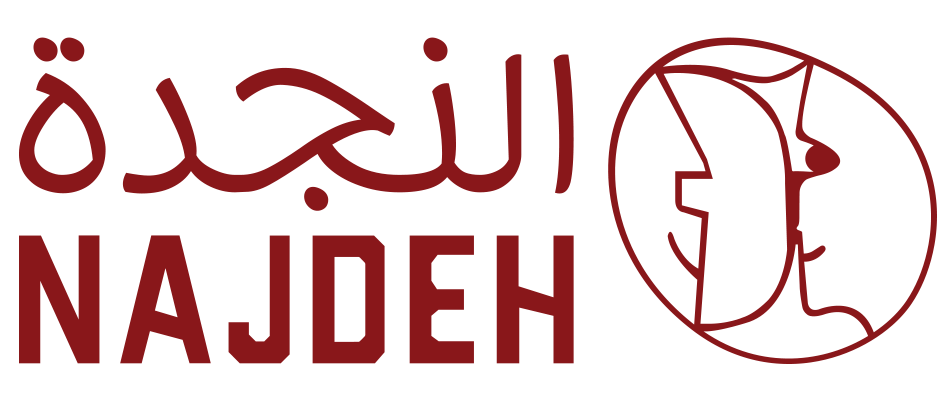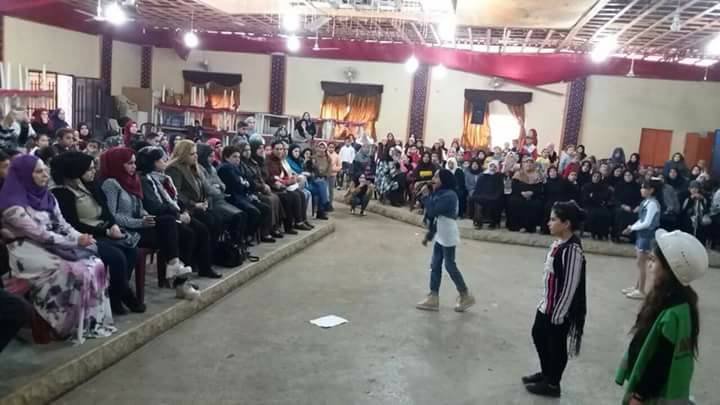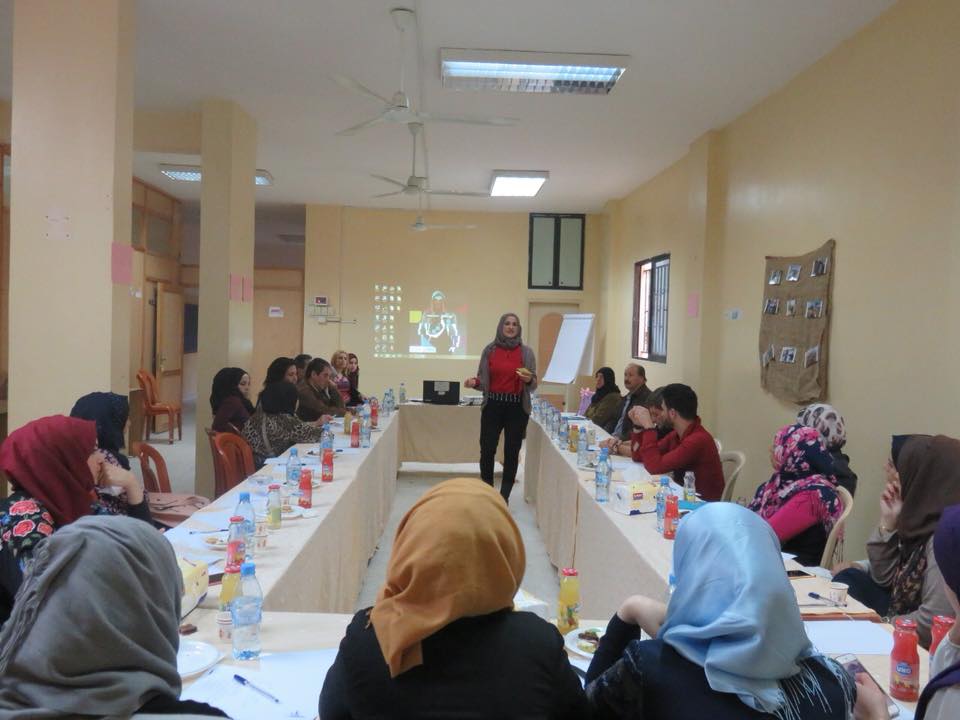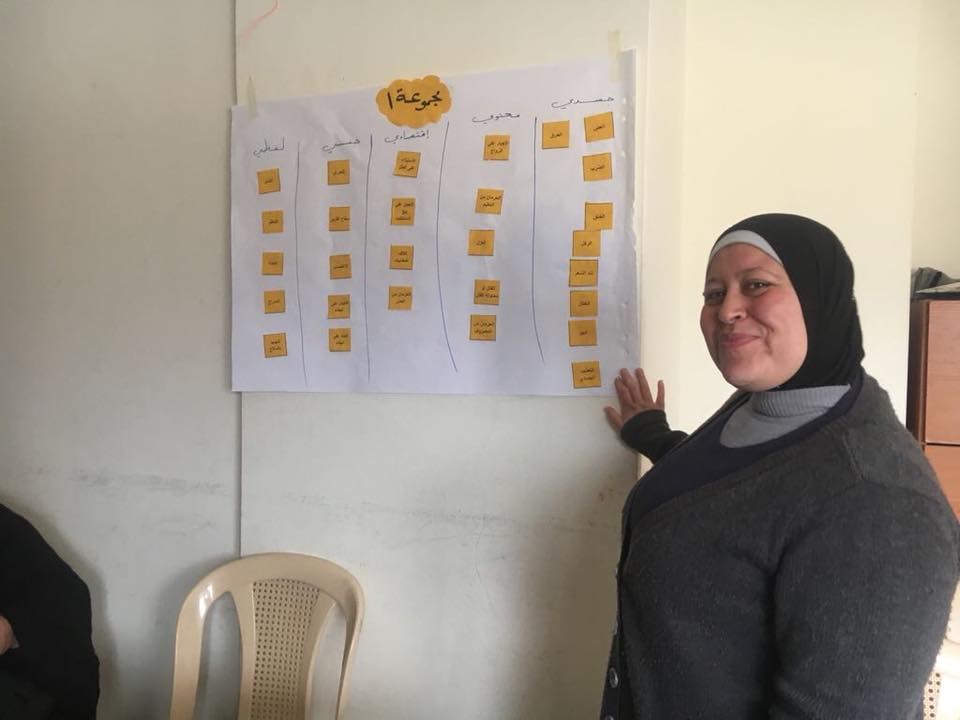The national roundtable “Following up on the 4th UfM Ministerial Meeting on Women’s Rights”, under the patronage of Minister of State for Women’s Affairs H.E. Jean Ogasapian, and with the support of the European Union, took place on 27th of April 2018 at Hotel Riviera. It was organized by the Euromed Feminist Initiative and its members in Lebanon, the Lebanese Women’s Democratic Gathering, and Association Najdeh. The one day event gathered representatives from women’s and human rights organizations and local stakeholders and discussed the Ministerial Declaration from the 4th UfM ministerial meeting on women’s rights (27/11/2017, Cairo) and the Declarations of Civil Society Conference (23-24/11/2017, Cairo) with policy recommendations to be implemented before the 5 th UfM Ministerial Meeting. The event initiated a discussion on mechanisms to follow up the implementation of the Ministerial commitments as a part of the regional process to follow up the 4th UfM Ministerial Declaration, organized by Euromed Feminist Initiative and supported by the EU. H.E.
Jean Ogasapian, Minister of State for Women’s Affairs, underlined that “Gender equality can’t be achieved without the full participation of all members of society. It is important that both women and men participate in discussions, policy-making, and implementation of measures to ensure women’s effective participation for equality”. The Minister further emphasized the responsibility men have in removing barriers, changing patriarchal attitudes, and preparing the ground for full gender equality. He expressed his expectation that this dialogue would contribute to the process of transforming the recommendations into practical measures during the coming roundtable dialogue between CSOs and stakeholders and on May 23rd.
Mr. Ogasapian insisted that the priority is to take “Concrete steps towards ending violence against women and enhancing women’s political participation.”
Mr. Rein Nieland, representing the EU Delegation, emphasized the importance of the roundtable in exchanging experiences and ideas and ensuring that all recommendations and declarations are translated into concrete actions to strengthen the place and role of women in the region, notably in Lebanon. He underlined that: “Gender equality is a principle, an objective and a mission for the EU in Lebanon. Advancing women’s leadership and economic empowerment is an absolute priority for us.”
Ms. Roula Zaiter, Euromed Feminist Initiative, reminded the milestones of the process of developing the Gender Regional Platform in preparation for the 4th UfM Ministerial Meeting and stressed the important role of the women’s rights organisations in leading a dialogue with decision makers and stakeholders in order to support the development and implementation of policies through specific mechanisms and indicators.
The speakers of the first panel presented the two Declarations. Ms. Leila El Ali, Euromed Feminist Initiative Co-President presented the Civil Society Conference Declaration focusing on the five policy recommendations and the mechanisms for the implementation of the gender equality in the region, while Ms. Mrs. Hayat Mershad, the founder of F-male underlined the areas of 4th UfM Ministerial Declaration on improving women’s role in society and addressed the implementation recommendations.
The discussion during the second session tackled the issue of mechanisms for the implementation of gender equality through the ministerial process. Attorney Mrs. Brigitte Chelebian, founding director of Justice without Frontiers (JWF), presented some ideas on follow up mechanisms at a national and institutional level that could contribute to concrete actions for the improvement of women’s rights in the identified priority areas, after which an open discussion followed. The participants emphasized that holistic, comprehensive and inclusive methodologies and approaches must be prioritized to ensure sustainable gender equality implementation strategies, policies, and actions. They underlined the importance to reinforce the link between all international and legal women’s rights agreements and instruments, in particular, CEDAW, UNSCR 1325, SDGs in a common frame. Participants highlighted the necessity of reaffirming the international and regional legal and institutional commitments by Lebanon to ensure the recognition and implementation of the women’s rights in consultation and participation with the women’s rights agencies, associations, and experts.
Some of the recommendations urge for forming a permanent coordination and consultation body of women’s rights CSOs and national institutions and Stakeholders for supporting and following up gender equality strategies and policies. Annual national report on the implementation of the Ministerial Declaration with the participation of the CSOs was also seen as highly relevant. Furthermore, a common database from national bodies, ministries, and service centers on violence against women and girls was seen as a necessity in order to reveal the situation of women. It was as well recommended to support the establishment of relevant governmental bodies on women’s rights, as well as an inter-ministerial committee as an observatory body to ensure an inclusive and comprehensive cooperation on gender equality. The participants agreed to submit their recommendations to the national stakeholders and relevant ministries during the national dialogue with them scheduled for 23rd of May.



